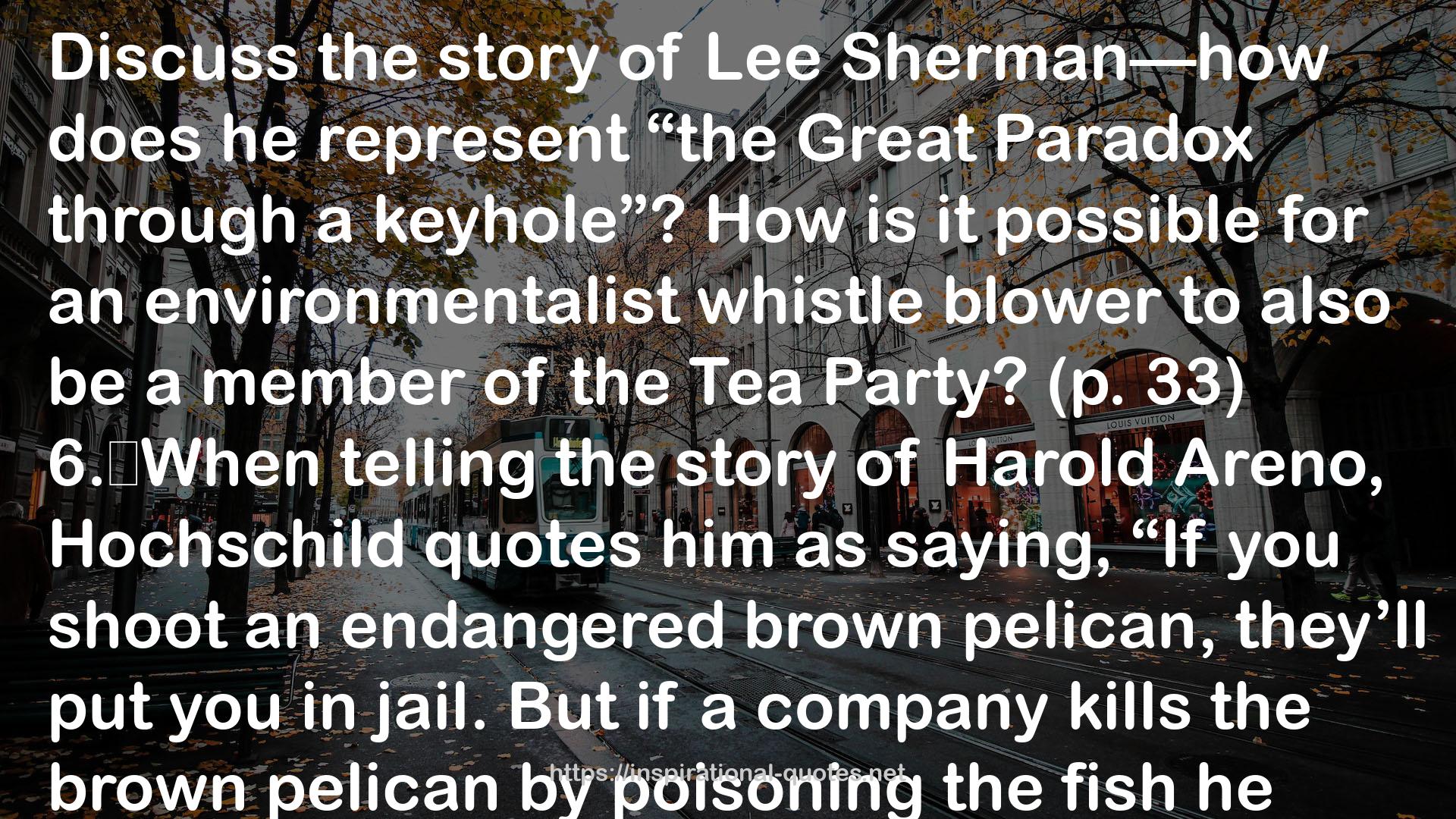" Discuss the story of Lee Sherman—how does he represent “the Great Paradox through a keyhole”? How is it possible for an environmentalist whistle blower to also be a member of the Tea Party? (p. 33) 6.When telling the story of Harold Areno, Hochschild quotes him as saying, “If you shoot an endangered brown pelican, they’ll put you in jail. But if a company kills the brown pelican by poisoning the fish he eats? They let it go. I think they overregulate the bottom because it’s harder to regulate the top.” Hochschild mentions the brown pelican throughout the book—how does the pelican function as an important motif in the book? (pp. 52, 138, 212) 7.When spending time with the General, whom Hochschild calls an “empathy wall leaper,” she writes that Louisiana residents prize the freedom to do certain things but resent the freedom from things like gun violence or toxic pollution, even when such restrictions might improve their lives. How does the General deal with what he calls this “psychological program”? (p. 71) 8.Hochschild provides overwhelming evidence that establishes a correlation between pollution and red states. She also discusses a report from the 1980s that helped identify communities that would not resist “locally undesirable land use.” Do you think she’s right to connect this profile of the “least resistant personality” with the General’s idea of the “psychological program”? (p. 81, Appendix B) 9.In a moment of feeling stuck on her own side of the empathy wall, Hochschild asks Mike Schaff what the federal government has done that he feels grateful for. What do you make of his answer and the idea that the less you depend on the government, the higher your status? Do you feel one’s status is diminished by receiving government help of any sort? Do others you know feel this way—and why? Do you think people generally feel less gratitude to the government today than in the past? What are you grateful for from the government? (pp. 113–114) "
― Arlie Russell Hochschild , Strangers in Their Own Land: Anger and Mourning on the American Right
